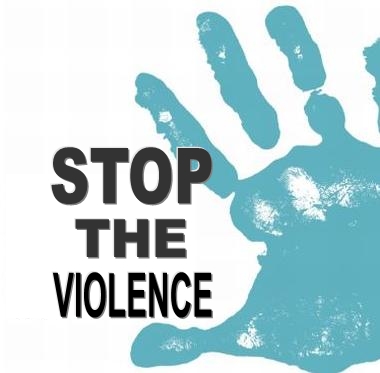Most people will experience some violence in their lives, whether it’s emotional, physical or psychological. However women are more likely than any other Canadians to encounter violence. Over half of Canadian women have reportedly experienced sexual or physical violence in their lifetimes since age 16. It is estimated that only six percent of women who have experienced violence report it. Though not extensive, this basic guide will outline:
Kinds of violence
How to listen
What to say
Solidarity
Kinds of violence
There are many kinds of violence and they affect people in different ways. There is no hierarchy in healing. Harassment can be as traumatic as any other kind of abuse. Violence happens everywhere, even within activist circles. Make sure that your campaign involves a safe space, where people can come forward if something has happened. It’s important to remain non-judgemental and understanding no matter what the survivor has experienced.
All violence is rooted in oppression. Systems of power like patriarchy, racism, homophobia, transphobia and ableism contribute to why some people feel as though they can exercise power over others and cause pain.
How to listen
Every survivor is an expert on their healing. Let them talk as much or as little as they want and make it clear that they aren’t under any pressure. Let them go at their own pace. Don’t feel like you have to give advice. Make sure they know that you believe them and that you don’t question their experiences. Acknowledge your own biases about violence and don’t subject the survivor to them.
When the survivor does want to talk, be supportive and validating. They might feel angry, sad, confused or helpless. These are all appropriate responses and make sure they know that. Ask open ended questions about how they feel. Ask what role you can play in their healing and avail yourself. Reassure them that talking about the incident is the best thing and that it is an act of great courage.
What to say
Be as honest as you can about your feelings. Here are some suggestions:
“I don’t know what to say, but I am here to support you however you need.”
“It wasn’t your fault. I’m sorry that happened to you. What can I do to participate in your healing?”
“If you don’t want to talk about what happened you don’t have to. I’m here for you whenever you want to.”
“I’ll support you in any decision you make.”
Solidarity
Use feminist, anti-oppression organizations in your community as resources. The best thing you can do to support survivors is to stand in solidarity. This means that you also have to support yourself and deal with the feelings that you have about the violence they experienced. Healing is a long process without a time line but well worth it to be there for strong survivors.




